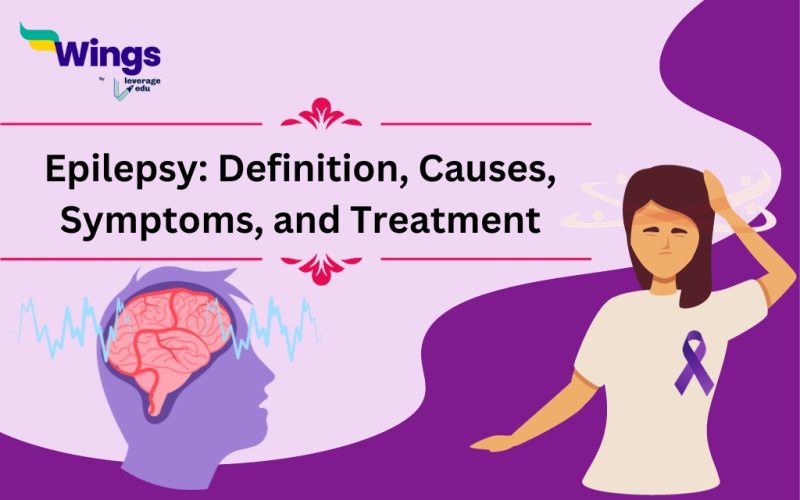Epilepsy is a chronic condition of the brain in which the functioning of the nerve cells gets disturbed causing seizures. A patient suffering from this neurological disorder experiences seizures that cause loss of consciousness and abnormal behaviour. According to the data collected by the World Health Organization around 50 million people in the world are struggling with epileptic seizures and this number makes the disease one of the most common psychological disorders. So, to spread awareness about the severity of this disease National Epilepsy Day is celebrated on 17 November every year. If you are unaware of the basic details of this illness then, stay tuned and read the entire article to know the definition, causes, symptoms, and treatment of epilepsy!
Also Read: How to improve your focus and brainpower?
Define Epilepsy
Epilepsy is defined as a chronic non-communicable brain disorder caused due to abnormal electrical activity in the brain leading to convulsions.
Maintaining brain health is very important. Malfunctioning of the neurotransmitters in the brain can lead to serious psychological issues. Talking about epilepsy affects a huge mass worldwide and is mainly characterized by recurrent seizures i.e. brief episodes of involuntary muscle movements of the entire body or some parts of the body.
Also Read: Class 11: Neural Control and Coordination
Types of Seizures
There are two main types of seizures:
- Generalized seizures affect both sides of the brain.
- Absence seizures (Petit Mal Seizures)
- Tonic-clonic seizures (Grand Mal Seizures)
- Tonic seizure
- Clonic seizure
- Atonic seizure
- Myoclonic seizure
- Focal seizures or partial seizures affect just one area of the brain.
- Simple focal seizures
- Complex focal seizures
- Secondary generalized seizures
Also Read: MSc Neuroscience
Causes and Symptoms of Epilepsy
It is caused by various factors and the rhythm of the electrical impulse in the brain gets affected causing fits. This disruption of the electrical impulse leads to loss of consciousness.
Here are some symptoms and causes of epilepsy:
Epilepsy Causes
The major causes of epilepsy are listed below:
- Metabolic disorder
- Genetics (childhood absence epilepsy)
- Head injuries
- Brain tumor
- Brain infection (encephalitis, brain abscess, meningitis, and neurocysticercosis)
- Developmental disorders or birth abnormalities in the brain (such as focal cortical dysplasia, tuberous sclerosis, and polymicrogyria)
- Alcohol intake
- Stress
- Dementia
Also Read: How to Prepare for UPSC in 6 Months?
Epilepsy Symptoms
Here are some symptoms of epilepsy:
- Muscle stiffness
- Jerking of limbs
- Seizures
- Temporary loss of consciousness
- Loss of muscle tone
- Staring in space
- Tingling sensation in fingers and foot
- Heat waves
- Upset stomach
- Increased heartbeat, etc.
Also Read: Purple Day of Epilepsy
Treatment of Epilepsy
This disease does not have any permanent cure but the condition of the epileptic patients can be treated with the help of anti-epileptic drugs, ketogenic and the modified Atkin’s diet, and through surgery and devices.
Here are some anti-epileptic medications that can be taken for the treatment of Epilepsy. However, they should be taken only if prescribed by your doctor.
Relevant Blogs
| World Stroke Day | World Heart Day |
| World Down Syndrome Day | National Cancer Survivor’s Day |
| World Arthritis Day | World Hepatitis Day |
| World Sight Day | International Albinism Awareness Day |
FAQs
A. A person suffering from this neurological disorder will experience involuntary muscle twitching or contraction i.e. uncontrollable jerking or fits due to abnormal firing of neurotransmitters in the nerve cells.
A. There are numerous causes of this disease as it could be genetic or acquired during life. Some of the main causes are head injury, brain tumors, developmental conditions, brain infection, genetic influence, etc.
A. Epilepsy has a significant effect on the life of the patient. The affected person may face difficulty in learning and carrying out day-to-day normal activities. Thus, life gets impacted but it is also true that with appropriate medication and help one can overcome the disease and lead a normal life.
That was the brief detail on epilepsy. For more information about such informative articles, make sure to check the trending events page of Leverage Edu.
 One app for all your study abroad needs
One app for all your study abroad needs













